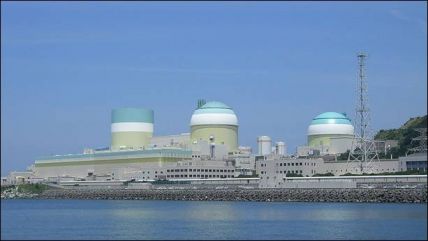|
|
Environment
Greenpeace: No Power Shortage in Japan Despite Idling 90% of Nuclerar Capacity
Monday, January 16, 2012

Tokyo- (PanOrient News) Despite the cold winter and with more than 90% of nuclear capacity being offline, there are no power shortages in Japan, according to Junichi Sato, Greenpeace Japan Executive Director, commenting on the Shikoku Electric Power’s Ikata No.2 nuclear reactor being taken offline on January 13th for scheduled checkups, bringing the three-reactor plant to a complete halt for the first time since the No. 3 unit started operating in 1994.
This makes only five reactors remaining operational around Japan, Sato said.
The Ikata Nuclear Power Plant (Ikata hatsudensho) is a nuclear power plant in the town of Ikata in the Nishiuwa District in Ehime Prefecture, Japan. It is the only nuclear plant on the island of Shikoku. It is owned and operated by the Shikoku Electric Power Company.
The action comes as many of the suspended reactors in Japan have remained unable to restart operation due to safety concerns following the Fukushima Daiichi nuclear plant crisis triggered by the March 2011 earthquake and tsunami in northeastern Japan.
“Japan’s nuclear industry is as much unneeded as it is unwanted, and with SPEEDI simulations of meltdowns proving to be dangerously inadequate, and a corruption scandal unfolding inside the Nuclear Safety Commission, it is clear that oversight and safety planning for reactor restarts are both severely compromised,” Sato said in a press release.
In November, Greenpeace called for the Japanese government to keep nuclear plants offline as SPEEDI simulation maps of potential accidents at Japan’s nuclear plants – which are used in the development of nuclear emergency response efforts - are completely inadequate, and have not been updated since the Fukushima disaster, the release said.
Greenpeace noted that an Asahi Shimbun study found that one-third of the Nuclear Safety Commission (NSC) members on committees overseeing inspections of power plants and nuclear fuel, received donations from companies and organizations affiliated with the nuclear energy sector.
Moreover, two of five NSC commissioners and 22 of 84 NSC members received a total of about 85 million yen (US$1.1 million) in such donations over a five-year period until fiscal 2010. Additionally, eleven individuals received donations from nuclear plant manufacturers as well as from electric power companies and nuclear fuel manufacturing companies that are the subjects of safety inspections. Also twenty of the examination committee members received at least a total of 60 million yen in donations even after they assumed their posts at the NSC.
“By now the Japanese government should have an accurate understanding of the catastrophic human, environmental, and economic costs a nuclear meltdown brings. It must not allow any reactor to reopen until the causes and consequences of the Fukushima meltdown have been properly examined, and emergency procedures for all plants in Japan thoroughly revised and improved,” concluded Sato.
PanOrient News
© PanOrient News All Rights Reserved.
|
|

